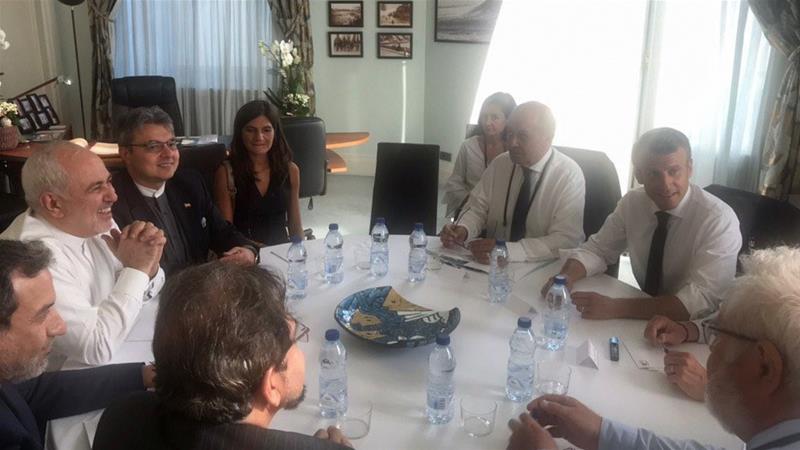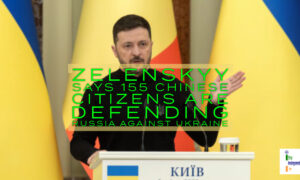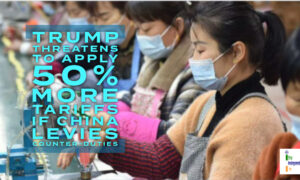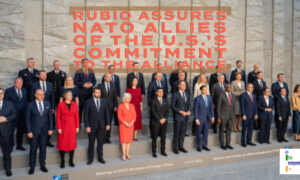
Unexpected visit by Iranian Foreign Minister at the G7 Summit , a last minute attempt by France to ease out tensions between US and Iran
The Minister of Foreign Affairs of Iran – Javad Zarif made a surprise visit to the seaside town of Biarritz in France on Sunday, i.e., August 25, 2019, for a meeting with the President of France – Emmanuel Macron.
He held a half an hour meeting with Macron. Prior to his meeting with Macron, Zarif held a 3 ½ hours meeting with the counterpart, Foreign Minister of France – Jean-Yves Le Drian. The meetings were held on the sidelines of ongoing 3-day G7 Summit. However, Zarif and the President of United States (U.S.) – Donald Trump didn’t came face to face.
Talking to media after his meeting with Macron, Zarif said, “President Macron made some suggestions last week to President (Hassan) Rouhani and we believe they are moving in the right direction, although we are not definitely there yet.”
Further, Zarif tweeted, “Iran’s active diplomacy in pursuit of constructive engagement continues. Met @EmmanuelMacron on sidelines of #G7Biarritz after extensive talks with @JY_LeDrian & Finance Min. followed by a joint briefing for UK/Germany. Road ahead is difficult. But worth trying.”https://twitter.com/JZarif/status/1165677910323269634?s=19
According to an official of Macron’s Office, the latter decided to invite the Zarif after hosting a dinner to G7 leaders on Saturday night, i.e., August 24, 2019. He even said that the invite was extended after consulting the U.S. But contrary to this, White House has rubbished this claim.
Macron, the host of this year’s G7 Summit, is trying to work out a deal that could deescalate the tensions between Islamic Republic of Iran and the U.S. The tensions between U.S and Iran have been continuously rising after U.S. abandoned the Joint Comprehensive Plan of Action (JCPOA), also known as Iran nuclear deal. The deal was reached in Vienna on July 14, 2015, between Iran, the P5+1 (the 5 permanent members of the United Nations Security Council—China, France, Russia, U.K., U.S. – plus Germany) and European Union (E.U.).
As per the agreement, Iran agreed to eliminate its stockpile of medium-enriched uranium, cut its stockpile of low-enriched uranium by 98%, and reduce by about 2/3rd the number of its gas centrifuges for 13 years. For the next 15 years Iran will only enrich uranium up to 3.67%. The relations got worse when Iran, in response to U.S.’s withdrawal, produced low-enriched uranium beyond the permissible limits of JCPOA. Post this, the relations turned hostile after Iran claimed they have downed a U.S. drone on June 20, 2019 over the Strait of Hormuz. This was followed by downing of an Iranian drone by USS Boxer, an amphibious assault ship of U.S. Navy, on July 19, 2019, in the Strait of Hormuz.
Macron has also spoken to Trump for relaxing the sanctions imposed on Iran such as lifting sanctions on sale of crude oil to India and China. Trump wants Iran to discontinue its ballistic missile programme and provide support to regional armed groups. But Iran has rejected that, saying Washington could not be trusted.







